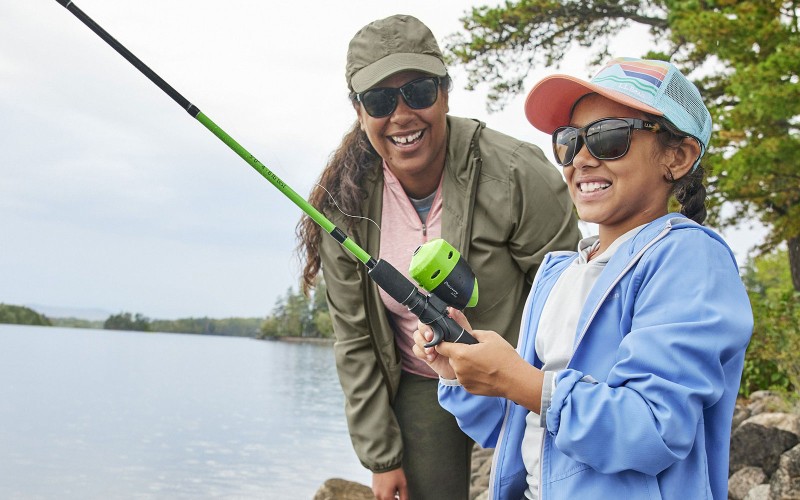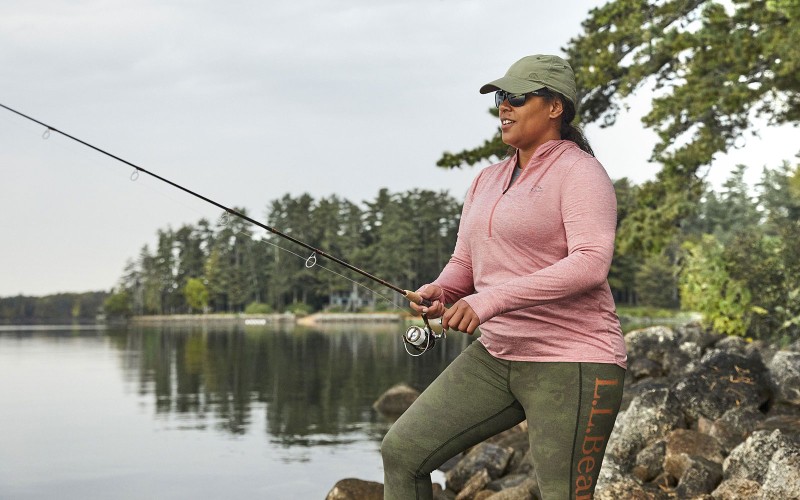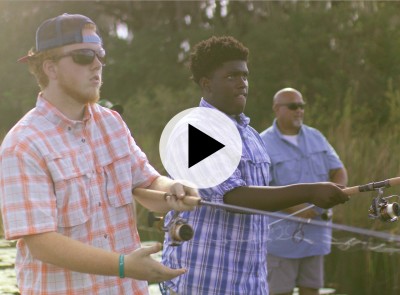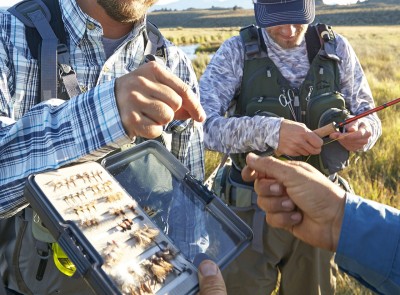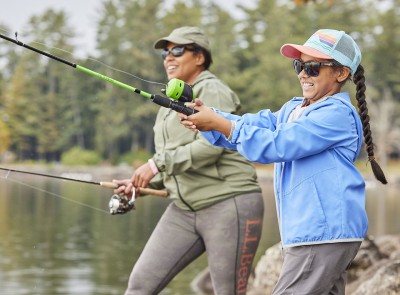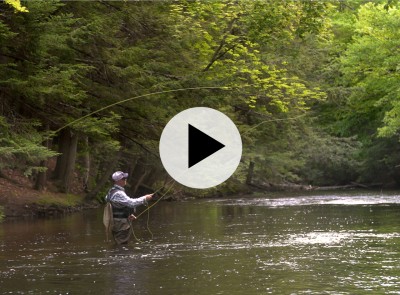Get the Family Started Fishing
Fishing with a spinning rod is an easy and simple way to get the whole family into the sport of fishing. With just a little gear, you can be out having fun on the water in no time. We have all the expertise and experience to help get you started.
2 Min. Read | Fishing
1. What Kind of Water Do You Want to Fish?
The type of water you like to fish will help determine the type of spinning rod you choose.
SMALL WATER
These are small rivers, creeks and ponds. Space can be tight with overhanging trees and other obstacles. Targeted fish species include trout, panfish and small bass. Ultralight to light rods, 5’6” long with 4 to 6 pound monofilament work well on small water.
MEDIUM WATER
Larger rivers, lakes and ponds, including fishing from a boat. Here you’re looking at larger trout, panfish and bass. You’ll want a spinning rod in a length of 6’ with 8 to 10 pound monofilament.
LARGE WATER
Big rivers, large lakes and saltwater estuaries from shore or boat. The fish can be quite large and include large bass, trout, salmon, pike, striped bass, redfish, snook, baby tarpon and sea trout to name a few. Heavier rods 6’6” to 7’ in length with 10 to 14 pound line are ideal.
SALT WATER
This includes fishing the open ocean surf, large estuaries and bays, tropical flats and offshore areas. Big water, big fish and constant wind require powerful rods. You could be going after hard-charging bluefish, striped bass, bonefish, bonito, false albacore, redfish, snook, barracuda, tarpon and other tough saltwater species. A heavy rod 7’ to 10’ long loaded with 14 to 20 pound line is necessary.
2. Tackle Time – Lures, Hooks, Weights & More
Besides a rod, reel and line, you’ll need a selection of lures, hooks and other gear. Get in touch with your local fishing shops to get the expert knowledge about the waters you want to fish.
LURES & HOOKS
Available to match any kind of prey a gamefish might eat. Gather local knowledge to help pick out the right selection.
SWIVELS, WEIGHTS & SINKERS
These simple pieces of gear help make a day of fishing easy and more enjoyable by getting your lure or bait down to where the fish are.
FLOATS & BOBBERS
These will help you detect bites when fishing bait. Again, consult with your local shop to find out the right sizes to use.
3. Stay Dry and Comfortable with Waders and Water Shoes
If you plan to fish in cooler conditions, you’ll need a good pair of waders to stay warm, dry and comfortable. There are two types of waders to consider:
WET WADING
When the water and weather are warm, you might not have a need for waders but you still need to protect your feet from stones, sticks, shells and gravel. We offer a full selection of sandals and water shoes that are great for wearing in and out of the water.
STOCKINGFOOT
This type of wader features a neoprene “stocking” that keeps your feet warm and dry. They require you to purchase a separate pair of wading boots that provide support and traction. They’re best for situations where a lot of walking and hiking is required because you can usually get a good fit with wading boots. Stockingfoot waders also pack down much smaller than bootfoot waders, making them ideal for travel.
BOOTFOOT
These feature a built-in boot that’s part of the wader. They’re not available in as many sizes as wading boots, so getting the perfect fit is more difficult. Bootfoot waders are better for cold conditions because you can usually wear thicker or more than one pair of warm socks. Finally, they’re a favorite for saltwater beach fishermen because there is no place for sand to collect inside the boot and there’s no hardware for saltwater to corrode.
Our specially designed money-saving combos are equipped with everything to get you out on the water. They include a spinning rod, spinning reel and monofilament line loaded on the reel.
Related Stories






